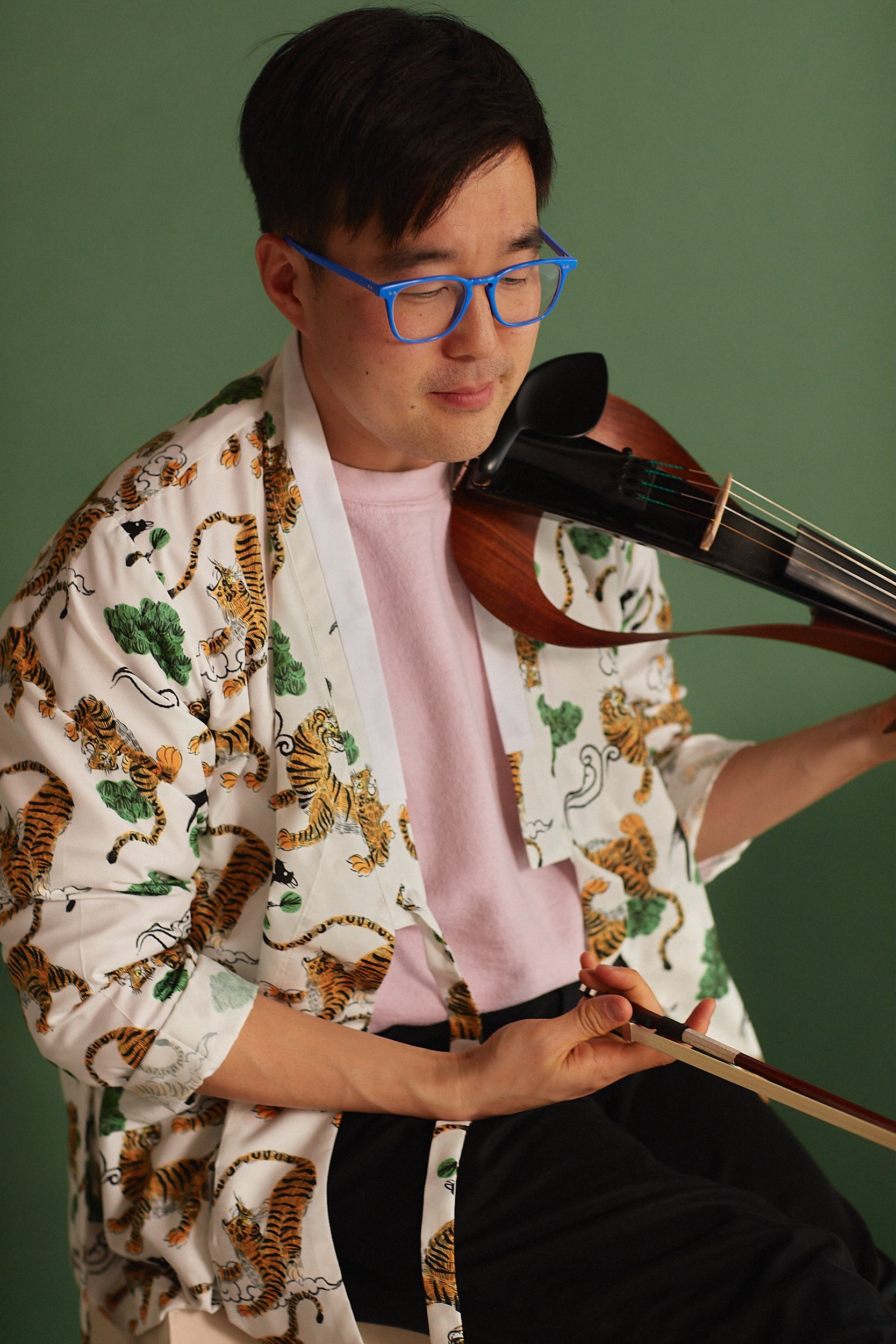Resonance Commissions | Safe Harbor
Video recording of the world premiere of Safe Harbor at the Alberta Rose Theatre.
Commission information
Composer: Joe Kye
Text: Joe Kye
Conductor: Dr. Katherine FitzGibbon
Duration: ca. 15’00”
Instrumentation: solo voice + SATB + violin + percussion
Performances:
MISSION 15 (June 8th, 2024)
Safe Harbor (March 1st, 2020)
Commission story
Immigration and asylum are ever-present in current political and public debate in the United States. In 2020, Resonance Ensemble presented the concert program Safe Harbor, in which we sought to explore varying experiences of coming to the U.S.—including experiences of immigration, asylum, and exile.
Familiar with Joe Kye for his whimsical and loop-based compositions, Resonance Ensemble was ecstatic to have the opportunity to work with Kye—who integrated folk music from his native Korea alongside American folk music and improvisation. The work also featured original text, which was used to weave full choral textures, background vocals, solo voice features, and speaking throughout the piece.
Director Dr. Katherine FitzGibbon and composer Joe Kye embrace following the emotional premiere of his work Safe Harbor at the Alberta Rose Theatre.
About Safe Harbor
A young Joe Kye takes up the mic (photo provided by Joe Kye)
Inspired by my journey as an immigrant as well as the current humanitarian crisis at our southern border, Safe Harbor is my personal exploration of movement and migration.
The piece starts where we all do—with our mothers. My first memory is auditory; I remember being carried by my mother, my ear pressed between her shoulder blades. I could hear her singing softly, the sweet folk lullaby muffled by the sound of her heart and body as I drifted off to sleep. This lullaby, the sound of a cuckoo bird, and the distinct rhythm that accompanies the lullaby as it begins to expand represent my childhood in Korea.
My parents told me we would move to America when I was six, and I remember the fear, sadness and anxiety as the move neared. Even today, the narrative surrounding migrants entering America rarely mentions the emotionally fraught decision to leave home. We like to think of America as a miracle land—of course everyone wants to come here—without considering the grief and inner conflict of leaving your world behind.
I try to capture this in Safe Harbor, especially from the viewpoint of my parents, who left Korea at age 33 with their two young children in search of opportunity. They left their families, dear friends, language, food, and all that they had accomplished in order to build upon their hopes for the future.
Photo by Ben Sellon
And yet, America proved to be far harsher than the dreamland we had built in our minds. The next portion of the piece tries to capture the reality of being a person of color and immigrant in this country. From unfair media representations to aloof cashiers, jokes that highlight my Otherness to micro-aggressions, it’s been a constant struggle to settle into my identity as an Asian-American and to truly feel like I belong in this country. Furthermore, my parents, who moved back to Korea in 2008, struggle to connect more deeply with their children, who grew into members of a culture they could never fully access. My sister and I, on the other hand, had to live two identities—a Korean at home, yearning to be more like our American friends, and an American in the world-at-large, yearning to bring our full selves into the public realm without fear of xenophobic reprisal.
There are three such quotes that interrupt the piece—all distinct moments in my life in which I felt unwelcome in this country. They range from direct bigotry to a subtler Othering, but all jarred me from feeling secure in my own body. These are the types of comments that we need to abolish from our lexicon if we are to create a more just, welcoming, and equitable world.
The final part of the piece is a meditation of sorts, a personal mantra for moving from disembodiment and unbelonging to rooted self-empowerment and the communal building of a more compassionate collective consciousness: “Breathe. Be. Build. We. Home. Sea. Sail. Me.” I offer myself space; encourage myself to create the world I want to live in; forgive myself for having a nontraditional sense of home, and instead celebrate the very nature of my fluid identity.
As all the voice parts slowly join in this chorus, I hope that we can also join together in building an America that lifts up the voices of those unheard and unsupported, that we may see their suffering as ours—and that, together, we can envision and build a land that is greater than the one we inhabit now.
Cue the cuckoo birds.
program note by Joe Kye



